MIRROR (1975)
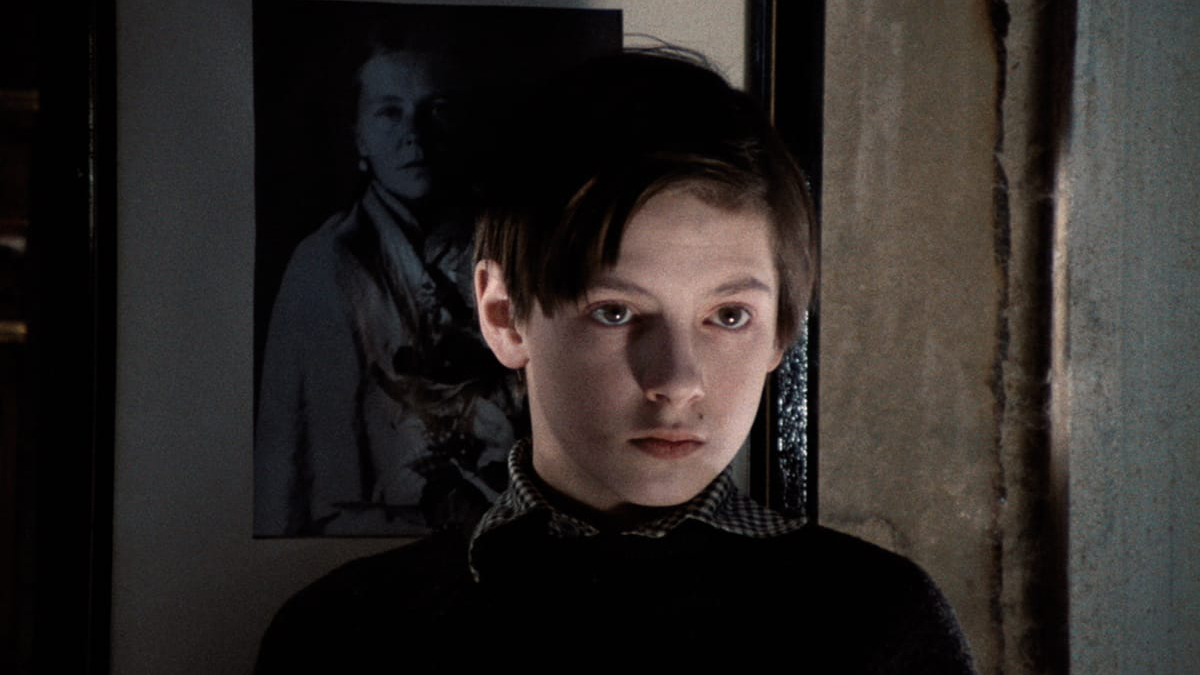
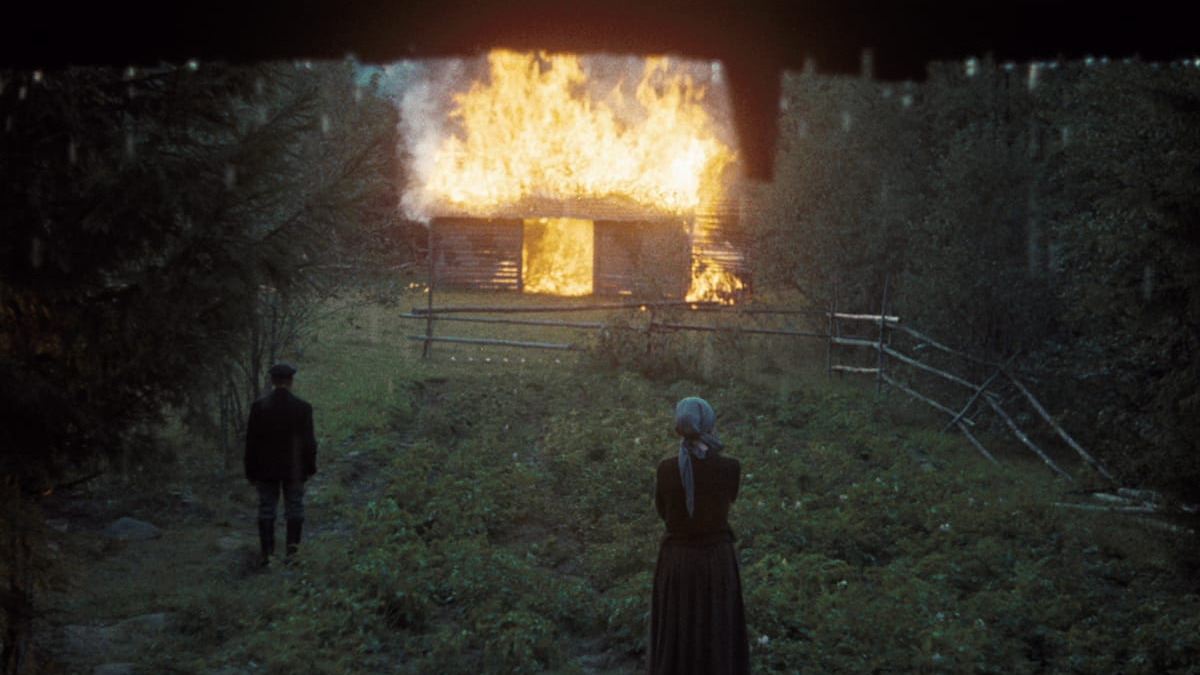
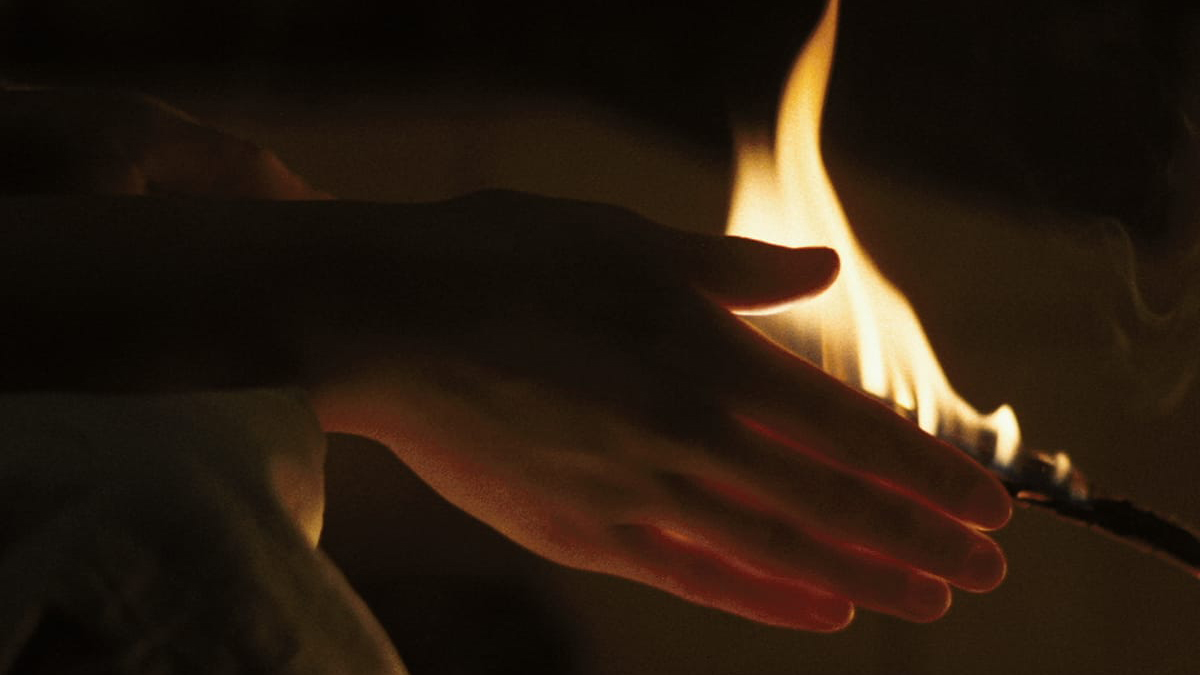
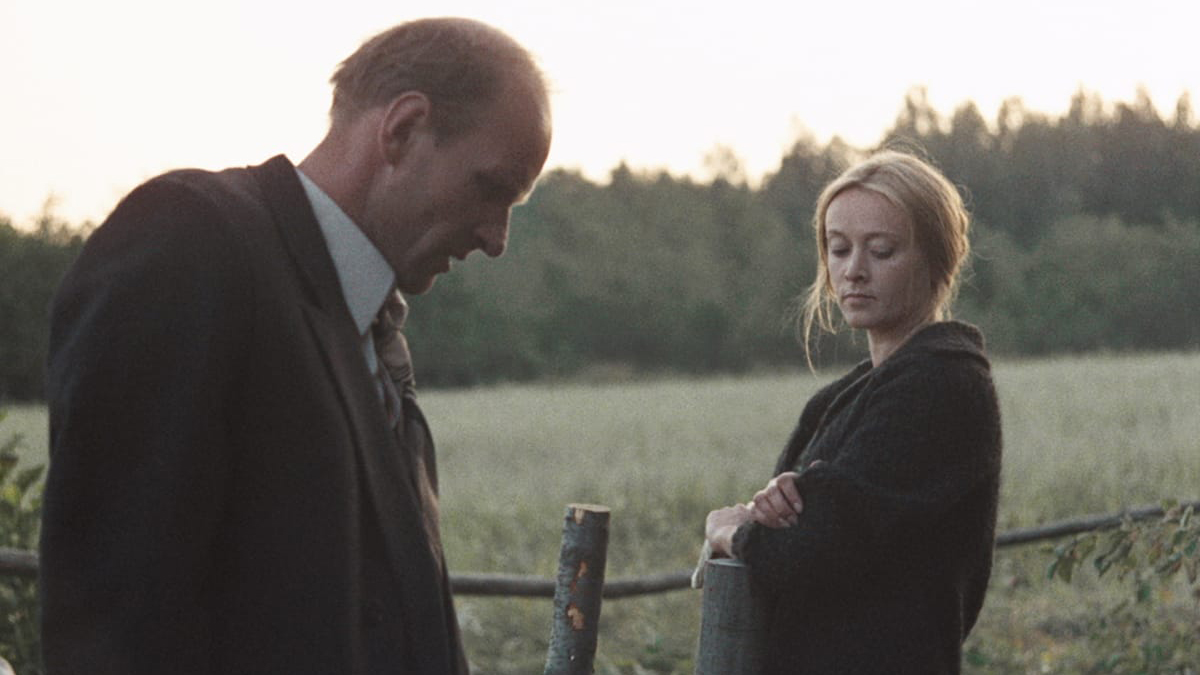
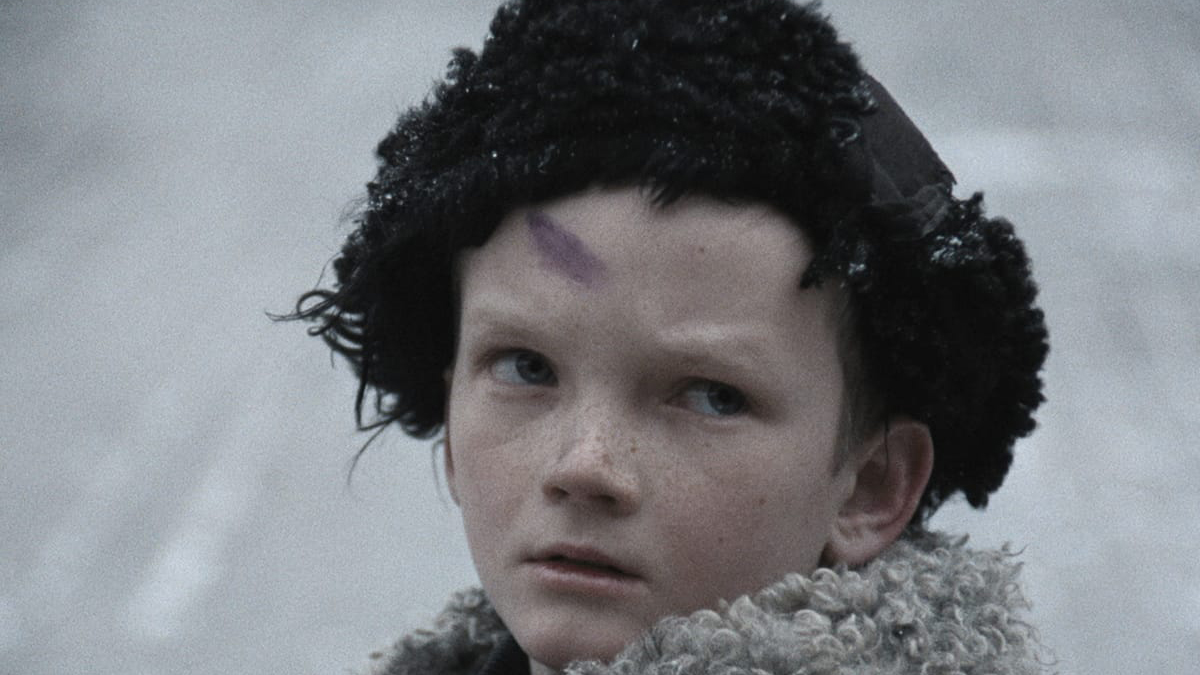
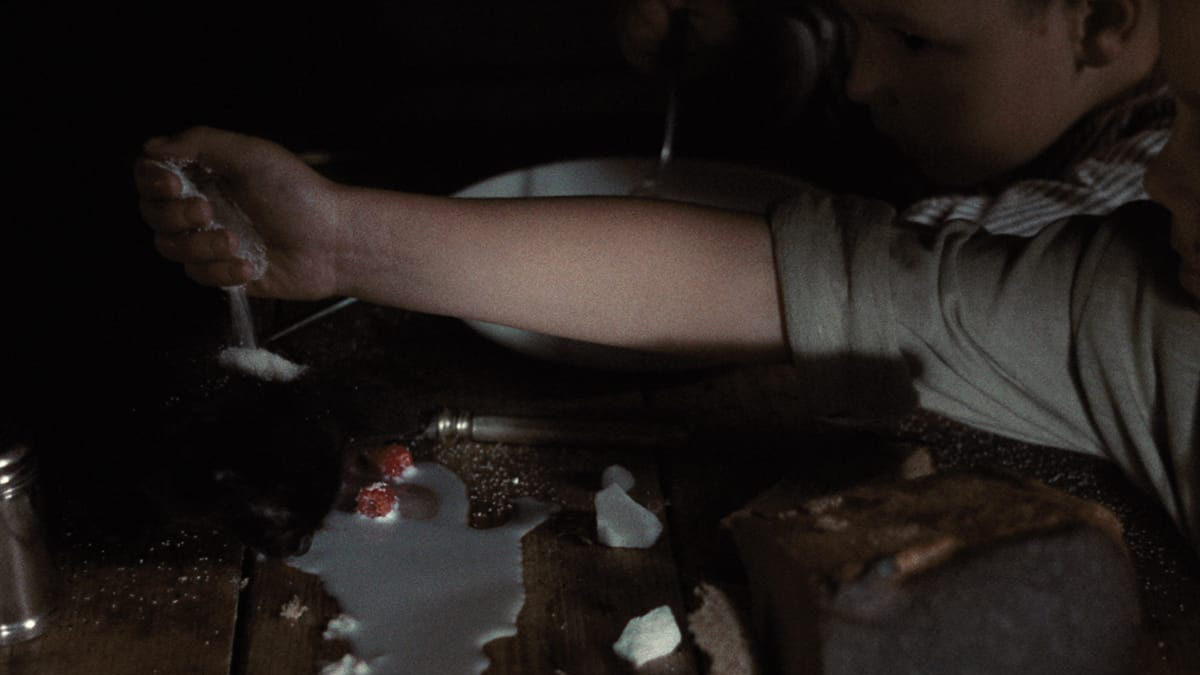
8:15 PM, Friday April 29
Premiere: Introduced by Alena Lodkina
10:30 AM, Sunday May 01
Randwick Ritz
Director: Andrei Tarkovsky
Country: USSR
Year: 1975
Runtime: 108 minutes
Rating: M
Language: Russian/ English Subtitles
TICKETS ⟶
Premiere: Introduced by Alena Lodkina
10:30 AM, Sunday May 01
Randwick Ritz
Director: Andrei Tarkovsky
Country: USSR
Year: 1975
Runtime: 108 minutes
Rating: M
Language: Russian/ English Subtitles
TICKETS ⟶
“MIRROR DESERVES A BIG-SCREEN VIEWING, WITH ITS SMORGASBOARD OF MEMORIES IN DREAM, DRAMA AND NEWSREEL FROM THE LIFE OF A DYING POET” – THE TIMES (UK)
Chosen by a poll of film directors in 2012 as the ninth greatest film ever made, Andrei Tarkovsky’s unconventional and beautifully poetic film fuses drama, documentary and dreams to express the regrets and reminiscences of a dying man.
Set in three time periods - the 1930s, 1940s and 1970s – the poet’s relationships with his mother, father, two wives, son and daughter are embedded in a subjective view of Russian history in the 20th Century.
An extremely rare opportunity to see this wonderful work on the big screen in a new 2K restoration.
“My discovery of Tarkovsky…was like a miracle. Suddenly I found myself standing at the door of a room the keys of which had until then, never been given to me…Tarkovsky is for me the greatest.” – Ingmar Bergman
Restored by Mosfilm from a 2K scan of the original negative.
Introduced by Alena Lodkina, film-maker, director of Strange Colours (2017).
Watch the Trailer
Chosen by a poll of film directors in 2012 as the ninth greatest film ever made, Andrei Tarkovsky’s unconventional and beautifully poetic film fuses drama, documentary and dreams to express the regrets and reminiscences of a dying man.
Set in three time periods - the 1930s, 1940s and 1970s – the poet’s relationships with his mother, father, two wives, son and daughter are embedded in a subjective view of Russian history in the 20th Century.
An extremely rare opportunity to see this wonderful work on the big screen in a new 2K restoration.
“My discovery of Tarkovsky…was like a miracle. Suddenly I found myself standing at the door of a room the keys of which had until then, never been given to me…Tarkovsky is for me the greatest.” – Ingmar Bergman
Restored by Mosfilm from a 2K scan of the original negative.
Introduced by Alena Lodkina, film-maker, director of Strange Colours (2017).
Watch the Trailer
FILM NOTES
By Rod Bishop
Andrei Tarkovsky:
“My discovery of Tarkovsky’s first film was like a miracle. Suddenly I found myself standing at the door of a room the keys of which had until then, never been given to me…Tarkovsky is for me the greatest, the one who invented a new language, true to the nature of film, as it captures life as a reflection, life as a dream”. – Ingmar Bergman
Born in 1932 in Zavrazhye, 300 kms from Moscow, Andrei Tarkovsky’s father was the poet and translator Arseny Tarkovsky and his mother Maria Vishnyakova, a graduate of the Maxim Gorky Literature Institute. He was only five-years-old when his father left the family, volunteering for the army during World War II and being awarded the Red Star. During the war, Andrei Tarkovsky moved to Moscow with his mother and sister where Maria worked as an editor and proofreader.
After high school, he studied Arabic at the Oriental Institute in Moscow, but dropped out to work as a prospector for the Academy of Science Institute for Non-Ferrous Metals and Gold, spending a year living in the Siberian taiga in the Krasnoyarsk Province.
He was accepted into the directing program at Gerasimov Institute of Cinematography (VGIK), making several short films and at least one television docudrama. Collaborating on a script with fellow classmate Andrei Konchalovsky, The Steamroller and the Violin (1960) became his graduation film and won First Prize at the New York Student Film Festival in 1961.
His first feature, Ivan’s Childhood (1962), centred around an orphan who becomes a scout for the Soviet army during World War II, brought Tarkovsky to international attention, winning the Golden Lion at the 1962 Venice Film Festival. Problems with Soviet authorities and several different versions of his second feature Andrei Rublev (1966), a historical epic based around the Russian icon painter, meant the film did not appear at Cannes until 1969 where it won the FIPRESCI prize. Soviet authorities had insisted it be screened Out of Competition.
The near three-hour science fiction drama Solaris (1972), adapted from the novel by Stanislaw Lem and described as ‘a sci-fi masterpiece’ by Salman Rushdie won the Grand Prix Spécial du Jury at the 1972 Cannes Film Festival.
Mirror (1975) was not well liked by Soviet authorities and suffered severely limited distribution in the USSR in third-class cinemas and workers clubs. It was, however, heralded in the West and its reputation has continued to grow significantly over the past 45 years.
His last film in the Soviet Union was Stalker (1979), a philosophical and theological science fiction drama following three men journeying to a mysterious “Zone”. It won the Ecumenical Jury prize at Cannes.
Some sources report The First Day (1979), a script by Tarkovsky and Andrei Konchalovsky set during the reign of Peter the Great in 18th Century Russia, was stopped half way through production when it was learnt the film differed from the script submitted to Soviet censors. Tarkovsky was reported to have destroyed most of what was filmed.
In Italy, he made the documentary Voyage in Time (1983) with Tonino Guerra and again, with Guerra, started production on Nostalghia (1983), a film set in Italy about a Russian writer who is stricken with homesickness while researching an ex-pat Russian composer. At Cannes, it won the Ecumenical and FIPRESCI prizes and shared a specially created prize ‘Grand Prix du cinema de creation’ with Robert Bresson (for L’argent).
In 1985, he was processed as a Soviet Defector in an Italian refugee camp.
His last film was the spiritually apocalyptic The Sacrifice (1986) made in Sweden and winner of the Grand Prix Spécial du Jury and the Ecumenical and FIPRESCI prizes at Cannes. He could not attend the festival to accept the awards and died of cancer on 29 December 1986.
Born in 1932 in Zavrazhye, 300 kms from Moscow, Andrei Tarkovsky’s father was the poet and translator Arseny Tarkovsky and his mother Maria Vishnyakova, a graduate of the Maxim Gorky Literature Institute. He was only five-years-old when his father left the family, volunteering for the army during World War II and being awarded the Red Star. During the war, Andrei Tarkovsky moved to Moscow with his mother and sister where Maria worked as an editor and proofreader.
After high school, he studied Arabic at the Oriental Institute in Moscow, but dropped out to work as a prospector for the Academy of Science Institute for Non-Ferrous Metals and Gold, spending a year living in the Siberian taiga in the Krasnoyarsk Province.
He was accepted into the directing program at Gerasimov Institute of Cinematography (VGIK), making several short films and at least one television docudrama. Collaborating on a script with fellow classmate Andrei Konchalovsky, The Steamroller and the Violin (1960) became his graduation film and won First Prize at the New York Student Film Festival in 1961.
His first feature, Ivan’s Childhood (1962), centred around an orphan who becomes a scout for the Soviet army during World War II, brought Tarkovsky to international attention, winning the Golden Lion at the 1962 Venice Film Festival. Problems with Soviet authorities and several different versions of his second feature Andrei Rublev (1966), a historical epic based around the Russian icon painter, meant the film did not appear at Cannes until 1969 where it won the FIPRESCI prize. Soviet authorities had insisted it be screened Out of Competition.
The near three-hour science fiction drama Solaris (1972), adapted from the novel by Stanislaw Lem and described as ‘a sci-fi masterpiece’ by Salman Rushdie won the Grand Prix Spécial du Jury at the 1972 Cannes Film Festival.
Mirror (1975) was not well liked by Soviet authorities and suffered severely limited distribution in the USSR in third-class cinemas and workers clubs. It was, however, heralded in the West and its reputation has continued to grow significantly over the past 45 years.
His last film in the Soviet Union was Stalker (1979), a philosophical and theological science fiction drama following three men journeying to a mysterious “Zone”. It won the Ecumenical Jury prize at Cannes.
Some sources report The First Day (1979), a script by Tarkovsky and Andrei Konchalovsky set during the reign of Peter the Great in 18th Century Russia, was stopped half way through production when it was learnt the film differed from the script submitted to Soviet censors. Tarkovsky was reported to have destroyed most of what was filmed.
In Italy, he made the documentary Voyage in Time (1983) with Tonino Guerra and again, with Guerra, started production on Nostalghia (1983), a film set in Italy about a Russian writer who is stricken with homesickness while researching an ex-pat Russian composer. At Cannes, it won the Ecumenical and FIPRESCI prizes and shared a specially created prize ‘Grand Prix du cinema de creation’ with Robert Bresson (for L’argent).
In 1985, he was processed as a Soviet Defector in an Italian refugee camp.
His last film was the spiritually apocalyptic The Sacrifice (1986) made in Sweden and winner of the Grand Prix Spécial du Jury and the Ecumenical and FIPRESCI prizes at Cannes. He could not attend the festival to accept the awards and died of cancer on 29 December 1986.
The Film:
There’s an oft-quoted story from Tarkovsky, who always bristled at the suggestion Mirror was “difficult”:
“One day, during a public debate organized after a screening [of Mirror] the discussion dragged on and on. After midnight, a cleaning woman arrived to clean the screening room, wanting to throw us out. She had seen the film earlier and she didn’t understand why we were arguing for such a long time about Mirror. She told us ‘Everything is quite simple; someone fell ill and was afraid of dying. He remembered, all of a sudden, all the pain he’d inflicted on others, and he wanted to atone for it, to ask to be pardoned’… The many film critics present hadn’t understood a thing, as usual. The more they talk, the less they understand…This simple woman had understood it all, she had grasped the repentance in the film”.
In 2012, Mirror was ranked as the ninth greatest film in cinema history by a Sight and Sound directors’ poll, a survey the magazine only takes once every decade.
Written and re-written many times between 1964 and 1974 - under at least seven different titles - Tarkovsky’s non-linear and poetically-driven autobiographic film certainly bypasses most narrative structures of conventional cinema.
All the director’s films have a spiritual realm that enters and disrupts the laws of cinematic convention, but Mirror is in a class of its own. Spiritual crises and obsession with art, particularly painting also recurs in his films and here Bruegel’s Hunters in the Snow inspires some shots and there’s a lengthy leafing through a book on Leonardo da Vinci showing many of the artist’s religious works as well as the Portrait of Ginevra de’Benci.
Tarkovsky once said: “A book read by 1000 different people is a thousand different books” and, arguably, Mirror doesn’t have a single meaning, relying instead on its multi-layered, visionary world to deliver individual interpretations to members of its audience.
The film crisscrosses between time periods using dreams, memories, fantasies, fictional recreations, bracing documentary footage and recited poetry, weaving a personal, emotive history of the Soviet Union during the 1930s, 1940s and 1970s.
Moving backwards and forwards between these time periods, it is narrated by the dying Alexei, a protagonist we hear but never see. Tarkovsky’s innovations in this film also stretched to casting - the same actress plays both Alexei’s mother Maroussia and Alexei’s former wife Natalia; and the same actor plays both the young Alexei and Alexei’s son Ignat. Tarkovsky’s mother plays Alexei’s mother in old age; Tarkovsky’s second wife plays a doctor’s wife; and his father Arseny, reads his own lyrical poetry as a counter-point to Alexei’s voice-over throughout the film.
On release, reviews in the Soviet Union were mixed, the worst of them damning it an ‘unfocussed failure’ and the USSR State Committee of Cinematography refused an invitation to enter the film in the Cannes Film Festival.
In 1986, the year of his death at the age of 54, Tarkovsky spelled out his artistic process in his book Sculpting in Time: “The dominant, all-powerful factor of the film image is rhythm, expressing the course of time within the frame”.
During a lecture in Italy in 1982, when Tarkovsky was working on Nostalghia, he observed: “To me cinema is unique in its dimension of time. This doesn’t mean it develops in time – so do music, theatre, ballet. I mean time in the literal sense. What is a frame, the interval between ‘action’ and ‘cut’? Film fixes reality in a sense of time – it’s a way of conserving time. No other art form can fix and stop time like this. Film is a mosaic made up of time.”
Applying his ideas of cinematic time to his autobiographical non-linear Mirror was clearly taxing:
“[During the editing] there were some twenty or more variants. I don’t just mean changes in the order of certain shots, but major alterations in the actual structure…at moments it looked like the film could not be edited…the film didn’t hold together, it wouldn’t stand up, it fell apart as one watched, it had no unity, no necessary inner connection, no logic…then one fine day…the material came to life; the parts started to function reciprocally, as if linked by a bloodstream…the film was born before our very eyes…Time itself, running through the shots, had met and linked together”.
Some scenes were even confusing for Tarkovsky:
“It was very important for me to have my mother in some scenes. There is one episode in the film in which the boy Ignat…is sitting when we hear the doorbell, he opens the door. This is my mother. And she is the grandmother of this boy who opens the door for her. But why doesn’t she recognize him, why doesn’t the grandson recognize her…one has completely no idea…even for me this is unclear.”
Tarkovsky uses a vortex of dreams, recreations, memories and newsreels for Alexei’s struggle with the seemingly preordained problems of his life.
His childhood is shown with all the regrets, mistakes, pains, disappointments, abandonment and fixations of a young child and, later as an adolescent, confronting the harsh realities of the adult world. As an adult, we hear his flawed and regretful relations with his ex-wife; the confusing conflations in his mind between his mother and his ex-wife and between his young self and his son Ignat; his longing for his absent father and his spiritual search through the history of his country.
For this great director, Mirror is an acknowledgment, a recognition, a praise and an act of grace for all those who shaped his life.
Audacious, unique cinema.
The Story
Spoiler alert. There has always been much confusion as to what occurs in Mirror. Plot synopses are often inconsistent. What follows is believed to be an accurate account of most of the events in the film and is provided for reference by viewers.
Alexei’s adolescent son Ignat watches television: a physician is performing hypnosis on a teenage boy to cure a vocal stammer. In the 1930s, Alexei’s mother Maroussia talks with a doctor near Alexei’s grandfather’s country house. A young Alexei with his mother and sister then watch as a neighbour’s barn burns down. A dream-like sequence takes place as Alexei’s father drips water onto Maroussia’s head as she washes her hair. At the end of the sequence, Maroussia sees herself in a mirror as an old Maroussia. (Tarkovsky’s own mother appears several times playing the old Maroussia).
In post-war times, in a Moscow apartment, Alexei is heard talking on the phone with his mother. Back in the 1930s, Maroussia rushes to her work at a printing press to correct a proofreading mistake (Tarkovsky’s mother was a proofreader). Her colleague Lisa turns on Maroussia blaming her for her husband’s desertion and predicting Maroussia will make her children miserable. In post-war times, the adult Alexei fights with his ex-wife Natalia who has left him and now lives with their adolescent son Ignat. Spanish neighbors in the Moscow apartment building, discuss bull fighting followed by newsreel footage from the Spanish Civil War and the 1937 launch of a balloon in the USSR.
In the apartment, Ignat meets a mysterious woman, reads a letter by Pushkin at her request, then talks to his father by phone. Back during WWII, a young Alexei is seen at rifle training, followed by newsreel footage of the war: Soviet troops crossing Lake Sivash; the fall of Berlin; atom bomb explosions at Hiroshima and Bikini Island; the Sino-Soviet conflict and the Maoist revolution. At war’s end, we catch a brief glimpse of Alexei’s father in uniform returning to his wife and reuniting with his adolescent children.
In post-war times, Alexei and Natalia discuss custody of Ignat (whom Alexei considers a ‘failure’ and a ‘booby’); Natalia looks at photos of Alexei’s mother and discusses her own possible marriage to a writer. With his mother Maroussia, the adolescent Alexei visits a country property once owned by the doctor and meets his wife and her baby son. Maroussia intends to sell the doctor’s wife some earrings. The woman invites them to dinner, but asks Maroussia to kill a rooster. This is followed by a dream sequence at the country house including a glimpse of Alexei’s father stroking a levitating Maroussia. In the post-war period, Alexei lies in bed (face unseen), apparently terminally ill. We then briefly see Alexei’s father in pre-war times lying on grass next to Maroussia and asking her if she wants to have a boy or a girl. In the final sequence, the old Maroussia reappears and, watched by the young Maroussia, walks through a field with the young Alexei and his sister. They reach a dirt road. Alexei stops and screams.
“One day, during a public debate organized after a screening [of Mirror] the discussion dragged on and on. After midnight, a cleaning woman arrived to clean the screening room, wanting to throw us out. She had seen the film earlier and she didn’t understand why we were arguing for such a long time about Mirror. She told us ‘Everything is quite simple; someone fell ill and was afraid of dying. He remembered, all of a sudden, all the pain he’d inflicted on others, and he wanted to atone for it, to ask to be pardoned’… The many film critics present hadn’t understood a thing, as usual. The more they talk, the less they understand…This simple woman had understood it all, she had grasped the repentance in the film”.
In 2012, Mirror was ranked as the ninth greatest film in cinema history by a Sight and Sound directors’ poll, a survey the magazine only takes once every decade.
Written and re-written many times between 1964 and 1974 - under at least seven different titles - Tarkovsky’s non-linear and poetically-driven autobiographic film certainly bypasses most narrative structures of conventional cinema.
All the director’s films have a spiritual realm that enters and disrupts the laws of cinematic convention, but Mirror is in a class of its own. Spiritual crises and obsession with art, particularly painting also recurs in his films and here Bruegel’s Hunters in the Snow inspires some shots and there’s a lengthy leafing through a book on Leonardo da Vinci showing many of the artist’s religious works as well as the Portrait of Ginevra de’Benci.
Tarkovsky once said: “A book read by 1000 different people is a thousand different books” and, arguably, Mirror doesn’t have a single meaning, relying instead on its multi-layered, visionary world to deliver individual interpretations to members of its audience.
The film crisscrosses between time periods using dreams, memories, fantasies, fictional recreations, bracing documentary footage and recited poetry, weaving a personal, emotive history of the Soviet Union during the 1930s, 1940s and 1970s.
Moving backwards and forwards between these time periods, it is narrated by the dying Alexei, a protagonist we hear but never see. Tarkovsky’s innovations in this film also stretched to casting - the same actress plays both Alexei’s mother Maroussia and Alexei’s former wife Natalia; and the same actor plays both the young Alexei and Alexei’s son Ignat. Tarkovsky’s mother plays Alexei’s mother in old age; Tarkovsky’s second wife plays a doctor’s wife; and his father Arseny, reads his own lyrical poetry as a counter-point to Alexei’s voice-over throughout the film.
On release, reviews in the Soviet Union were mixed, the worst of them damning it an ‘unfocussed failure’ and the USSR State Committee of Cinematography refused an invitation to enter the film in the Cannes Film Festival.
In 1986, the year of his death at the age of 54, Tarkovsky spelled out his artistic process in his book Sculpting in Time: “The dominant, all-powerful factor of the film image is rhythm, expressing the course of time within the frame”.
During a lecture in Italy in 1982, when Tarkovsky was working on Nostalghia, he observed: “To me cinema is unique in its dimension of time. This doesn’t mean it develops in time – so do music, theatre, ballet. I mean time in the literal sense. What is a frame, the interval between ‘action’ and ‘cut’? Film fixes reality in a sense of time – it’s a way of conserving time. No other art form can fix and stop time like this. Film is a mosaic made up of time.”
Applying his ideas of cinematic time to his autobiographical non-linear Mirror was clearly taxing:
“[During the editing] there were some twenty or more variants. I don’t just mean changes in the order of certain shots, but major alterations in the actual structure…at moments it looked like the film could not be edited…the film didn’t hold together, it wouldn’t stand up, it fell apart as one watched, it had no unity, no necessary inner connection, no logic…then one fine day…the material came to life; the parts started to function reciprocally, as if linked by a bloodstream…the film was born before our very eyes…Time itself, running through the shots, had met and linked together”.
Some scenes were even confusing for Tarkovsky:
“It was very important for me to have my mother in some scenes. There is one episode in the film in which the boy Ignat…is sitting when we hear the doorbell, he opens the door. This is my mother. And she is the grandmother of this boy who opens the door for her. But why doesn’t she recognize him, why doesn’t the grandson recognize her…one has completely no idea…even for me this is unclear.”
Tarkovsky uses a vortex of dreams, recreations, memories and newsreels for Alexei’s struggle with the seemingly preordained problems of his life.
His childhood is shown with all the regrets, mistakes, pains, disappointments, abandonment and fixations of a young child and, later as an adolescent, confronting the harsh realities of the adult world. As an adult, we hear his flawed and regretful relations with his ex-wife; the confusing conflations in his mind between his mother and his ex-wife and between his young self and his son Ignat; his longing for his absent father and his spiritual search through the history of his country.
For this great director, Mirror is an acknowledgment, a recognition, a praise and an act of grace for all those who shaped his life.
Audacious, unique cinema.
The Story
Spoiler alert. There has always been much confusion as to what occurs in Mirror. Plot synopses are often inconsistent. What follows is believed to be an accurate account of most of the events in the film and is provided for reference by viewers.
Alexei’s adolescent son Ignat watches television: a physician is performing hypnosis on a teenage boy to cure a vocal stammer. In the 1930s, Alexei’s mother Maroussia talks with a doctor near Alexei’s grandfather’s country house. A young Alexei with his mother and sister then watch as a neighbour’s barn burns down. A dream-like sequence takes place as Alexei’s father drips water onto Maroussia’s head as she washes her hair. At the end of the sequence, Maroussia sees herself in a mirror as an old Maroussia. (Tarkovsky’s own mother appears several times playing the old Maroussia).
In post-war times, in a Moscow apartment, Alexei is heard talking on the phone with his mother. Back in the 1930s, Maroussia rushes to her work at a printing press to correct a proofreading mistake (Tarkovsky’s mother was a proofreader). Her colleague Lisa turns on Maroussia blaming her for her husband’s desertion and predicting Maroussia will make her children miserable. In post-war times, the adult Alexei fights with his ex-wife Natalia who has left him and now lives with their adolescent son Ignat. Spanish neighbors in the Moscow apartment building, discuss bull fighting followed by newsreel footage from the Spanish Civil War and the 1937 launch of a balloon in the USSR.
In the apartment, Ignat meets a mysterious woman, reads a letter by Pushkin at her request, then talks to his father by phone. Back during WWII, a young Alexei is seen at rifle training, followed by newsreel footage of the war: Soviet troops crossing Lake Sivash; the fall of Berlin; atom bomb explosions at Hiroshima and Bikini Island; the Sino-Soviet conflict and the Maoist revolution. At war’s end, we catch a brief glimpse of Alexei’s father in uniform returning to his wife and reuniting with his adolescent children.
In post-war times, Alexei and Natalia discuss custody of Ignat (whom Alexei considers a ‘failure’ and a ‘booby’); Natalia looks at photos of Alexei’s mother and discusses her own possible marriage to a writer. With his mother Maroussia, the adolescent Alexei visits a country property once owned by the doctor and meets his wife and her baby son. Maroussia intends to sell the doctor’s wife some earrings. The woman invites them to dinner, but asks Maroussia to kill a rooster. This is followed by a dream sequence at the country house including a glimpse of Alexei’s father stroking a levitating Maroussia. In the post-war period, Alexei lies in bed (face unseen), apparently terminally ill. We then briefly see Alexei’s father in pre-war times lying on grass next to Maroussia and asking her if she wants to have a boy or a girl. In the final sequence, the old Maroussia reappears and, watched by the young Maroussia, walks through a field with the young Alexei and his sister. They reach a dirt road. Alexei stops and screams.
The Restoration:
Restored by Mosfilm from a 2K scan of the original negative.
Credits:
Zerkalo, Зеркало, aka The Mirror | Dir: Andrei TARKOVSKY | USSR | 1975 | 106 mins | 2K DCP (orig. 35mm) | Colour, B&W | 1.37:1 | Mono Sound | Russian, Spanish with English Subtitles | PG.
Production Company: Mosfilm | Producer: Erik WAISBERG | Script: Aleksandr MISHARIN, Andrei TARKOVSKY | Photography: Georgy RERBERG | Editor: Lyudmila FEYGINOVA | Production Design: Nikolay DVIGUBSKIY| Sound: A. MERKULOV | Music: Eduard ARTEMYEV | Costumes: Nelli FOMINA | Special Visual Effects: Yuri POTAPOV.
Cast: Margarita TEREKHOVA (‘Natalya’, ‘Maria, The Mother’), Oleg YANKOVSKIY (‘The Father’), Filipp YANOVSKIY (‘Aleksei at Five Years Old’), Ignat DANILTSEV(‘Ignat’, ‘Aleksei at 12 years old’), Nikolay GRINKO (‘Printing Works Director’), Yurly NAZAROV (‘Shooting Instructor’), Innoketiy SMOKTUNOVSKIY (‘Adult Aleksei’, Narrator), Maria VISHNYAKOVA (‘Old Maria’), Arseny TARKOVSKY (‘Father’).
Source: Janus Films.
Credits:
Zerkalo, Зеркало, aka The Mirror | Dir: Andrei TARKOVSKY | USSR | 1975 | 106 mins | 2K DCP (orig. 35mm) | Colour, B&W | 1.37:1 | Mono Sound | Russian, Spanish with English Subtitles | PG.
Production Company: Mosfilm | Producer: Erik WAISBERG | Script: Aleksandr MISHARIN, Andrei TARKOVSKY | Photography: Georgy RERBERG | Editor: Lyudmila FEYGINOVA | Production Design: Nikolay DVIGUBSKIY| Sound: A. MERKULOV | Music: Eduard ARTEMYEV | Costumes: Nelli FOMINA | Special Visual Effects: Yuri POTAPOV.
Cast: Margarita TEREKHOVA (‘Natalya’, ‘Maria, The Mother’), Oleg YANKOVSKIY (‘The Father’), Filipp YANOVSKIY (‘Aleksei at Five Years Old’), Ignat DANILTSEV(‘Ignat’, ‘Aleksei at 12 years old’), Nikolay GRINKO (‘Printing Works Director’), Yurly NAZAROV (‘Shooting Instructor’), Innoketiy SMOKTUNOVSKIY (‘Adult Aleksei’, Narrator), Maria VISHNYAKOVA (‘Old Maria’), Arseny TARKOVSKY (‘Father’).
Source: Janus Films.
